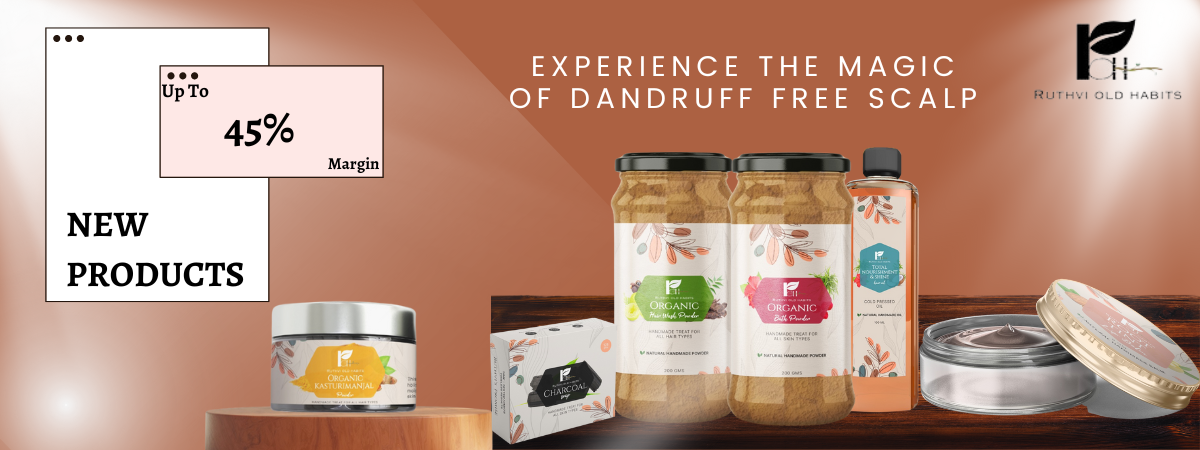Becoming a distributor of herbal products can be a lucrative business, given the growing demand for natural and organic products. Here’s a step-by-step guide to help you get started:
1. Research the Market
Understand Demand: Research the current market trends for herbal products, including skincare, supplements, teas, and medicinal herbs. Identify products with high demand and potential growth.
Target Audience: Define your target market—whether it’s health-conscious individuals, alternative medicine users, beauty enthusiasts, or wellness stores.
Competition: Study your competitors and identify gaps in the market. This will help you find unique products or ways to stand out. Oraiste (S. N. Professionals) – 1Click Distributors
2. Choose a Niche or Product Line
Herbal products cover a wide range of categories, including:
Herbal skincare and cosmetics
Dietary supplements and health boosters
Essential oils and aromatherapy products
Herbal teas and beverages
Ayurvedic and traditional medicinal herbs
Select a Niche: Focusing on a specific niche can help you specialize and target a particular customer base more effectively.
3. Find a Reliable Supplier or Manufacturer
Manufacturer Partnerships: Look for established herbal product manufacturers who offer distributorships. Reach out to companies that align with your values (organic, non-toxic, cruelty-free, etc.).
Wholesale Platforms: Explore online marketplaces or platforms that connect distributors with manufacturers of herbal products.
Certifications: Ensure that the manufacturer provides products that comply with necessary certifications (e.g., organic, GMP-certified, ISO standards).
Quality Control: Work with manufacturers that maintain high-quality control standards for their herbal products to build customer trust.
4. Register Your Business
Legal Structure: Choose the legal structure of your business (sole proprietorship, partnership, LLC, etc.) and register it accordingly.
Licenses and Permits: Obtain any necessary licenses or permits required to distribute herbal products in your region. For example:
Drug and cosmetic licenses (if distributing medicinal herbs)
Food safety certifications (if distributing herbal teas or supplements)
Tax Registration: Ensure you are registered for relevant taxes such as GST, VAT, or sales tax based on your location.
5. Develop a Business Plan
Create a detailed business plan that includes:
Business goals and vision
Target market and customer base
Product sourcing strategy
Marketing and sales strategies
Financial projections
Distribution network plan (local, national, or online) 1Click Distributors ‹ Log In
6. Set Up Distribution Channels
Retail Distribution: Partner with health stores, pharmacies, supermarkets, and wellness centers to place your products in brick-and-mortar stores.
Online Distribution: Develop an online presence via eCommerce platforms or your own website to sell directly to consumers. Consider platforms like Amazon, Flipkart, and other herbal product marketplaces.
B2B Partnerships: Build relationships with spas, salons, health practitioners, and other businesses that might buy herbal products in bulk.
7. Marketing and Branding Home – 1Click Distributors
Brand Identity: Build a strong brand around your distributorship, emphasizing the natural, organic, or sustainable nature of the herbal products you distribute.
Digital Marketing: Leverage online marketing strategies such as:
Social media marketing (Instagram, Facebook, YouTube) to educate consumers and showcase your products.
SEO and Google Ads to attract health-conscious customers searching for herbal products online.
In-Store Promotions: Organize promotions and events at partner retail outlets to boost visibility and drive sales.
8. Provide Training and Support
Train retailers or sales staff on the benefits and uses of the herbal products you distribute. This can help increase sales and ensure that the right information is passed on to the end consumer.
Offer promotional materials such as brochures, product samples, and educational content to support marketing efforts. Health & Beauty – 1Click Distributors
9. Build Relationships with Customers and Retailers
Customer Service: Ensure you have a system in place to manage customer queries, orders, and complaints efficiently.
Incentives: Offer incentives, discounts, or bulk-buying options for retailers and customers who place larger orders.
10. Stay Compliant and Keep Up with Trends
Regulations: Ensure that you stay updated on the latest health and safety regulations in your country for herbal products.
Innovation: Stay ahead of industry trends by regularly updating your product offerings to include popular new herbal ingredients or formulas.
By following these steps, you can establish yourself as a successful distributor of herbal products, helping consumers access high-quality, natural solutions while building a profitable business. Ruthvi Old Habits – 1Click Distributors

